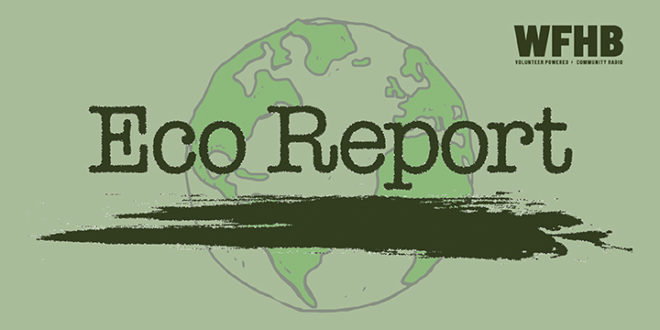Podcast: Play in new window | Download (Duration: 29:00 — 18.3MB)
Subscribe: RSS
There are many experiments in agrivoltaics, or co-locating solar panels and food production, being undertaken around the United States.
In defiance of a court order, the Trump administration Environmental Protection Agency (EPA) will not regulate perchlorate, a toxic chemical used in rocket fuel that contaminates drinking water and harms the development of fetuses and small children.
Pepsico, the world’s second-largest food and beverage company, has changed its palm oil sourcing policy and agreed to use its influence with other companies to end rainforest destruction and human rights abuses in Indonesian forests, home to the last orangutans, which face extinction.
The Trump administration is finalizing rules for hunting in Alaska that Jesse Prentice-Dunn, policy director for the Center for Western Priorities, calls ” amazingly cruel.”
More than a third of the world’s old growth forests died between 1900 and 2015, a new study has found.
The future of the hotly contested, environmentally risky Dakota Access Pipeline suffered a major blow recently when a federal court struck down its permits and ordered a comprehensive environmental review, called an environmental impact statement, to be conducted by the US Army Corps of Engineers. The court ruled that the current permits violate the National Environmental Policy Act.
In a pilot study at the University of Helsinki, dogs trained as medical diagnostic assistants were taught to recognize the previously unknown odor signature of the COVID-19 disease caused by the novel coronavirus.
Ohio regulators have imposed a last-minute permitting condition that could put an end to a wind energy project. The proposal was for a small wind farm along Lake Erie in Lakewood, located just west of Cleveland.
A bald eagle nest with eggs has been discovered in Cape Cod for the first time in one hundred fifteen years, according to the Massachusetts Division of Fisheries and Wildlife, as Newsweek reported.
In 2016, the Standing Rock Sioux Tribe launched a battle against an oil pipeline running across their ancestral lands. Despite their efforts gaining international attention, the twelve-hundred-mile-long Dakota Access Pipeline was built anyway. The tribe lost that battle—but its members didn’t let that defeat stop them from tackling the greater issue at hand: climate change.
 WFHB Bloomington Community Radio
WFHB Bloomington Community Radio


